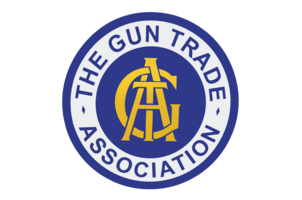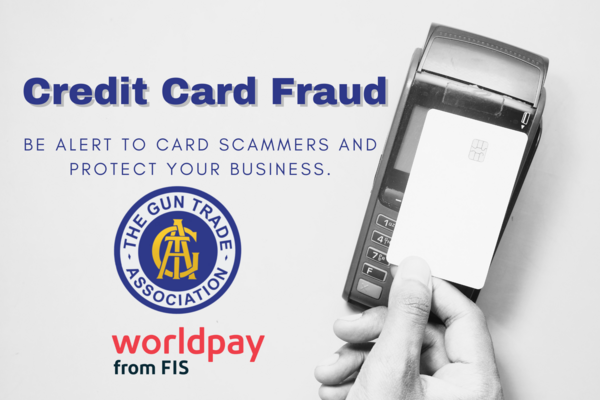The Gun Trade Association has been made aware of an increasing number of examples of credit card fraud across all retail environments, including the gun trade. The most recent was for an expensive air rifle and the retailer was not compensated. The scammer used chip and PIN.
We spoke with Worldpay’s Luke Bryan so that he can help you be alert to card scammers and protect your business.
Why are we seeing an increase in these scams Luke?
“COVID-19 has accelerated the switch to card payments and transformed consumer behaviour, with a new report by Worldpay showing that cash payments dropped by 13% in 2020. The report forecasts that by 2024, 7% of in-store purchases will be made in cash, with a third of payments being made by mobile.
While businesses are right to embrace digital transactions to meet customer expectations and streamline the experience at the till, there are new risks in the form of card fraud. UK Finance’s Fraud the Facts 2021 report found that fraud losses on UK-issued cards totalled £574.2 million in 2020.”
So, what should the retailer watch out for?
- “Sometimes a fraudster will make a payment over the phone or online using a compromised card and then request to collect the goods via a courier service, or friend/relative. This is because their address doesn’t match the legitimate cardholder’s.
- Often the payment is for a large order — possibly larger than you’d normally accept — and sometimes split over several cards.
- Be aware of last-minute changes to the delivery address and requests to send items to hotels, guest houses or PO boxes.
- Fraudsters may also contact your business claiming to work for your payment service provider (PSP). They may claim there’s a problem with your terminals and request card transactions be processed via the phone with their ‘operatives’ – including full details.
- They might even send an ‘engineer’ who arrives unannounced and requests previous card transaction details to perform ‘checks’ on the machines.
- In a face-to-face environment, fraudsters may even try to bypass chip and PIN and magstripe checks by using damaged cards.”
What can the retailer do?
“To reduce the risk of fraud losses, always follow the prompts on your terminal, train staff regularly in anti-fraud measures, and follow your instincts. If something seems dubious, it probably is. That could mean:
- Multiple cards being used for one payment
- Orders way above your usual transaction amount
- Customers with multiple delivery addresses
- Requests for collection via a courier
- Multiple declines on different cards
- Customers Bypassing Chip and Pin
Remember, card authorisation doesn’t mean a transaction is fraud-free, merely that the card hasn’t been reported lost or stolen and that there are funds in the account. Any customer insisting on collecting items in-store should produce the card used. You should cancel the original CNP transaction and process a new chip and PIN sale.
Implement 3D Secure authentication checks on your website to reduce online fraud and liability and comply with PSD2, and partner with a PSP that runs its own fraud checks in the background for every transaction. Address Verification Service (AVS) and Card Verification Code (CVC) — also known as CVV, CSC or CVV2 — are also useful checks to make for CNP transactions.”
And if the worst happens, what next?
“If you are hit by fraud but have been unable to recover your money, report it to Action Fraud, the National Fraud & Cyber Crime Reporting Centre. This will provide you with a Crime Reference Number (CRN) which will enable the police to look into the case. That same CRN will allow you to update the report with any new information. Action Fraud also has a list of resources designed to help businesses protect their revenue and reputation and streamline the reporting process.
With fraud losses on the rise, it pays to stay alert in order to protect your business profits and reputation. But if you do get hit, reporting it will at least ensure the authorities gain a clearer picture of fraud patterns up and down the UK.”
For a FREE Payments health check, from market-leading provider, Worldpay get in touch with me at [email protected] at The Gun Trade Association or email Worldpay’s RFD representative Luke, on [email protected]




